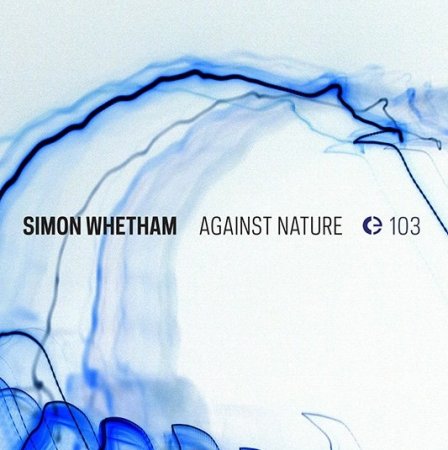If field recordings are often the attempt to freeze-frame nature in all its everlasting purity, then Simon Whetham’s latest album of manipulated ambient is decidedly Against Nature. Conceived as part of his ongoing project to record certain environmental sounds and then allow incidental disturbances to creep into their engineering/mixing/production, the Londoner’s new collection of five aleatoric pulsations explores not only our collective need to return to nature whenever we crave a more solid foundation for our liquid selves, but also our collective failure to find anything but the “nature” we construct and reconstruct with each renewed visit.
In other words, Whetham isn’t Against Nature per se so much as against that simplistic concept of “Nature” as some eternal and immutable entity. Drawn-out gusts of atmosphere and static like “Against Nature [1]” are him vainly miking some isolated nook or cranny in the hope that its isolation will preserve it from change and disruption. Instead, the supposedly objective recording of its sound (including distant clanging and the faint rippling of fire) is infiltrated and undermined by the subjective particularities of his equipment, of an abrupt tear at the five-minute mark and the resulting whiteouts that come to refigure its “naturalness” with the whims and eccentricities of man-made gear.
On the one hand, this qualifies the album as a deconstructionist comment on naturalism, on how all “dispassionate” and “neutral” illustrations of nature are always pervaded by human ideology. On the other, the clattered volleys and muted shufflings of, for example, “Against Nature [3]” allow for a biological or naturalist reading of their own, insofar as the randomness with which Whetham permits them to develop corresponds to the randomness through which natural selection and evolution themselves occur. The cut’s squeaked yawns and grained buzzing move almost haphazardly, ultimately altering their natural source material in much the same unplanned way that genetic mutations alter theirs.
It’s precisely through this error-prone working method that Whetham launches his deepest attack Against Nature. In the crackled, ever-shifting trickles of “Against Nature [4],” he declares that nature, quite apart from the people who would change and appropriate it for their own ends, is always changing and re-appropriating itself. The track’s accidental waves of electrical interference and distortion are the perfect counterpart to a nature that’s accidentally distorting itself as it duplicates its own DNA. Via all the uninvited noises and fractured bursts, the composition paints the picture of a nature that, far from being a reassuring locus of constancy, is the model par excellence of inconstancy, as well as all the Godlessness that comes with it.
Yet in the end, what’s interesting about the album on a musical level is its reminder that art can never innocently depict the world without changing it at the same time. The faulty, cavernous vibrations of “Against Nature [5]” explicitly underline how the listener’s experience of the environments traced by Whetham is bluntly adjusted according to the defective media he employs. The disquiet that the piece’s fizzed, secluded humming incites in this listener contingently influences her perceptions, and even if the particular places represented aren’t actually modified by their representation, she and how she will treat similar places in the future nonetheless are. This goes some way to refuting the view that music does nothing but signify the natural spaces and social domains it claims to guiltlessly mirror. It also goes some way to refuting the view that, despite being an often lonely and desolate listen, Against Nature isn’t without importance and meaning.
More about: Simon Whetham


